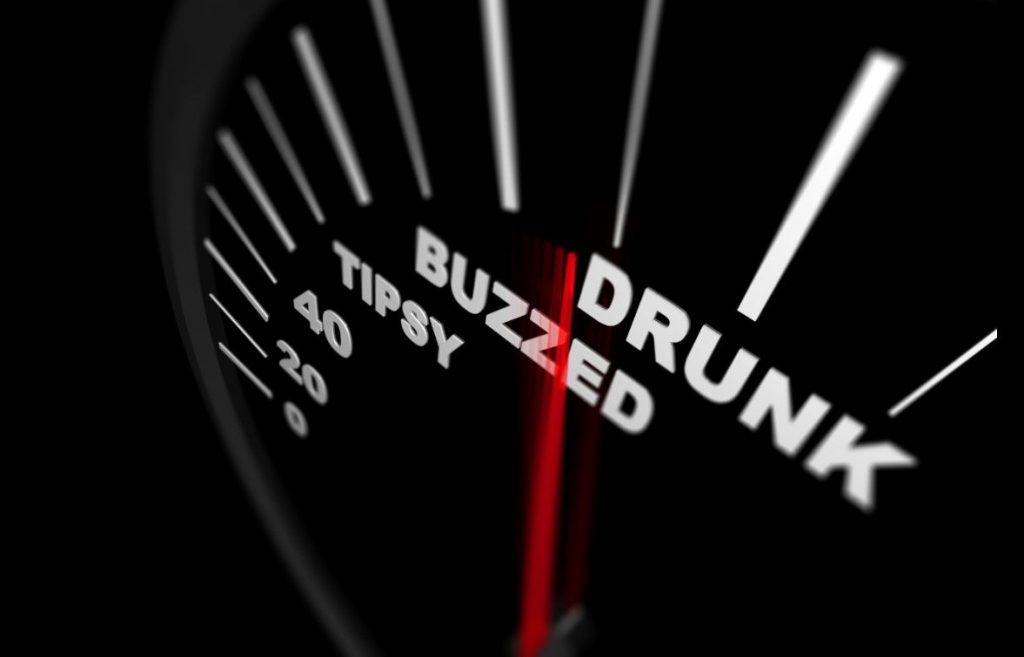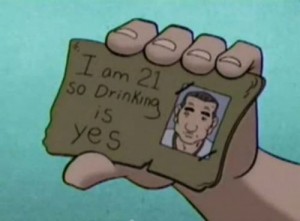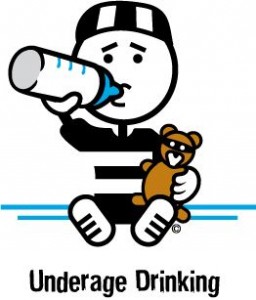DWI/DUI – Refusing a Breathalyzer Test
Wednesday, January 15th, 2020
DWI/DUI refers to Driving While Impaired (DWI), or Driving Under the Influence (DUI). Commonly, even more terms are used to describe what North Carolina General Statute (N.C.G.S.) defines in §20-138.1 as impaired driving, for example driving while intoxicated, drunk driving, or drugged driving. Pursuant to N.C.G.S. § 20-138.1. A person commits the offense of impaired driving if he drives any vehicle upon any highway, any street, or any public vehicular area within this State:
(1) While under the influence of an impairing substance; or
(2) After having consumed sufficient alcohol that he has, at any relevant time after the driving, an alcohol concentration of 0.08 or more. The results of a chemical analysis shall be deemed sufficient evidence to prove a person’s alcohol concentration; or
(3) With any amount of a Schedule I controlled substance, as listed in G.S. 90-89, or its metabolites in his blood or urine.
Often, law enforcement agencies set up road blocks in order to detect drunk or drugged drivers, in other cases, law enforcement officers pull drivers over who exhibit signs of impaired driving. In either scenario, upon suspicion of impaired driving, a law enforcement officer will request for the driver to submit to a breath test, and/or administer a field sobriety test to determine if the level of impairment is outside the legal limits.
Pursuant to N.C.G.S. §20-16.2. Any person who drives a vehicle on a highway or public vehicular area thereby gives consent to a chemical analysis if charged with an implied-consent offense. Any law enforcement officer who has reasonable grounds to believe that the person charged has committed the implied-consent offense may obtain a chemical analysis of the person. Before any type of chemical analysis is administered the person charged shall be taken before a chemical analyst authorized to administer a test of a person’s breath or a law enforcement officer who is authorized to administer chemical analysis of the breath, who shall inform the person orally and also give the person a notice in writing that:
(1) You have been charged with an implied-consent offense. Under the implied-consent law, you can refuse any test, but your driver license will be revoked for one year and could be revoked for a longer period of time under certain circumstances, and an officer can compel you to be tested under other laws.
(2) Repealed by Session Laws 2006-253, s. 15, effective December 1, 2006, and applicable to offenses committed on or after that date.
(3) The test results, or the fact of your refusal, will be admissible in evidence at trial.
(4) Your driving privilege will be revoked immediately for at least 30 days if you refuse any test or the test result is 0.08 or more, 0.04 or more if you were driving a commercial vehicle, or 0.01 or more if you are under the age of 21.
(5) After you are released, you may seek your own test in addition to this test.
(6) You may call an attorney for advice and select a witness to view the testing procedures remaining after the witness arrives, but the testing may not be delayed for these purposes longer than 30 minutes from the time you are notified of these rights. You must take the test at the end of 30 minutes even if you have not contacted an attorney or your witness has not arrived. NC Gen. Stat. 20-16.2 Implied consent to chemical analysis; mandatory revocation of license in event of refusal; right of driver to request analysis.
Before the revocation of one’s driving privilege goes into effect based on their refusal to submit to a chemical analysis, North Carolina Division of Motor Vehicles (NCDMV) will send a letter to let one know for when the suspension of their driver license is scheduled, and will advise of the right to request a preliminary hearing. If NCDMV receives the request for a preliminary hearing along with payment for the required hearing fee in the amount of $450.00, prior to the suspension going into effect, one may retain their driver license pending the outcome of the preliminary hearing.
Upon six months from the effective date of the suspension of one’s driver license due to their refusal, the court may be petitioned for a limited driving privilege for the remainder of the one year refusal suspension.
Fortunately, Collins Law Firm is here to help those facing impaired driving charges in New Hanover, Pender, and Brunswick County. Attorney David Collins has over 25 years of experience in the legal field, and has successfully represented many people charged with DWI/DUI. If you or someone you know has DWI/DUI, then call us at (910) 793-9000 for a confidential consultation.
By Jana H. Collins, Paralegal

 During this December holiday season, a record-breaking 112.5 million Americans will be traveling, which is a 4.4% increase since last year, according to American Automobile Association (AAA). While many people may choose to fly this holiday season, it is important for the ones who are driving to their Christmas destinations to be prepared for their travels, no matter the distance. Some precautions you should take to help ensure safe travels include making sure you have gotten a recent oil change, and if not do so, check your tires to make sure they have the right pressure, keep your gas tank at least ¼ full, do not let it go below that, and be sure to secure all luggage in the car.
During this December holiday season, a record-breaking 112.5 million Americans will be traveling, which is a 4.4% increase since last year, according to American Automobile Association (AAA). While many people may choose to fly this holiday season, it is important for the ones who are driving to their Christmas destinations to be prepared for their travels, no matter the distance. Some precautions you should take to help ensure safe travels include making sure you have gotten a recent oil change, and if not do so, check your tires to make sure they have the right pressure, keep your gas tank at least ¼ full, do not let it go below that, and be sure to secure all luggage in the car. This holiday season AAA is expecting 103 million Americans to travel, which is nearly 1.5 million more people than last year. While many people choose to fly to their Christmas destinations, AAA is predicting that more people will be driving this year than previous years. It is very important that those driving, no matter the distance, are prepared for their travel. Make sure you’ve recently gotten an oil change, check your tires to make sure they have the right pressure, never let your gas tank get below ¼ of a tank while traveling, and secure all luggage in your car.
This holiday season AAA is expecting 103 million Americans to travel, which is nearly 1.5 million more people than last year. While many people choose to fly to their Christmas destinations, AAA is predicting that more people will be driving this year than previous years. It is very important that those driving, no matter the distance, are prepared for their travel. Make sure you’ve recently gotten an oil change, check your tires to make sure they have the right pressure, never let your gas tank get below ¼ of a tank while traveling, and secure all luggage in your car. You may want to think twice before using a fake ID in New Hanover or Pender County from now on. Starting October 1, you will face more penalties in court if you are caught using a fake ID.
You may want to think twice before using a fake ID in New Hanover or Pender County from now on. Starting October 1, you will face more penalties in court if you are caught using a fake ID. As a prelude to this text, please keep in mind that we are referencing DWIs currently eligible for expunction (i.e., those convicted of a DWI that were released from supervision 15 or more years ago) under N.C.G.S. § 15A-145.5.
As a prelude to this text, please keep in mind that we are referencing DWIs currently eligible for expunction (i.e., those convicted of a DWI that were released from supervision 15 or more years ago) under N.C.G.S. § 15A-145.5. Independence Day originally started as a celebration for the United States liberation from Great Britain. Over the years, culture has shifted, and this has become a day when people of all ages flock towards the beaches for relaxation and time with family and friends. Popular hangout spots, such as Masonboro Island, Mason’s Inlet, and the North End at Carolina Beach, have drawn crowds to Wilmington. Due to an increase in safety concerns in the area during popular holidays, such as Memorial Day and July the fourth, law enforcement has increased patrols and monitoring of the waterways, beaches, and surrounding areas.
Independence Day originally started as a celebration for the United States liberation from Great Britain. Over the years, culture has shifted, and this has become a day when people of all ages flock towards the beaches for relaxation and time with family and friends. Popular hangout spots, such as Masonboro Island, Mason’s Inlet, and the North End at Carolina Beach, have drawn crowds to Wilmington. Due to an increase in safety concerns in the area during popular holidays, such as Memorial Day and July the fourth, law enforcement has increased patrols and monitoring of the waterways, beaches, and surrounding areas. This past Memorial Day weekend, Wilmington officials reported numerous traffic violations and accidents. According to news sources, there were approximately six deadly crashed that occurred throughout the state, one of which tragically took the lives of a newborn and toddler in Pender County. In all, seven people lost their lives in these accidents over the weekend. Half of these incidents occurred in the Cape Fear region. The number of fatal crashes has reduced since last year, however, one life lost is still one too many. Always wear your seatbelt and be alert and aware of your surroundings.
This past Memorial Day weekend, Wilmington officials reported numerous traffic violations and accidents. According to news sources, there were approximately six deadly crashed that occurred throughout the state, one of which tragically took the lives of a newborn and toddler in Pender County. In all, seven people lost their lives in these accidents over the weekend. Half of these incidents occurred in the Cape Fear region. The number of fatal crashes has reduced since last year, however, one life lost is still one too many. Always wear your seatbelt and be alert and aware of your surroundings. This weekend, April 8-12, 2015, is the 68th Annual North Carolina Azalea Festival in Wilmington, NC, New Hanover County. The Festival is an annual celebration of Wilmington’s gardens and culture. The festival covers five days of entertainment which includes: a parade, street fair, circus, concerts, pageantry, and all that is Southern. Beginning in 1948, the Festival has blossomed into an extended weekend celebration that attracts more than 250,000 people annually to the region including and surrounding New Hanover County, NC.
This weekend, April 8-12, 2015, is the 68th Annual North Carolina Azalea Festival in Wilmington, NC, New Hanover County. The Festival is an annual celebration of Wilmington’s gardens and culture. The festival covers five days of entertainment which includes: a parade, street fair, circus, concerts, pageantry, and all that is Southern. Beginning in 1948, the Festival has blossomed into an extended weekend celebration that attracts more than 250,000 people annually to the region including and surrounding New Hanover County, NC. A new policy in the Fifth Prosecutorial District that affects youths charged with underage drinking has gone into effect as of late November of 2014. This new policy will reshape the requirements for those who enter into a deferred prosecution agreement for an underage drinking charge. The goal of this new program is to help young offenders by teaching them the risks and consequences of underage alcohol consumption as well as avoiding a permanent mark on their criminal record. This program will only be offered to first time offenders that have not previously been convicted of any drug or alcohol crimes.
A new policy in the Fifth Prosecutorial District that affects youths charged with underage drinking has gone into effect as of late November of 2014. This new policy will reshape the requirements for those who enter into a deferred prosecution agreement for an underage drinking charge. The goal of this new program is to help young offenders by teaching them the risks and consequences of underage alcohol consumption as well as avoiding a permanent mark on their criminal record. This program will only be offered to first time offenders that have not previously been convicted of any drug or alcohol crimes. The New York Times recently published a story entitled “Driving Under the Influence, of Marijuana.” The story suggested that driving under the influence of marijuana (pot) is much less risky than driving while impaired by alcohol. The report also indicated that it is difficult to detect impairment by pot with the standardized field sobriety tests used in DWI by alcohol cases, and it is difficult to confirm impairment with laboratory tests. The article discusses several studies making these findings and noted the conclusion of some experts that public resources would be better spent combating alcohol-impaired driving, including perhaps lowering the per se threshold for alcohol concentrations to 0.05, than in establishing a per se limit for blood-THC content or devising roadside tests to detect for marijuana impairment.
The New York Times recently published a story entitled “Driving Under the Influence, of Marijuana.” The story suggested that driving under the influence of marijuana (pot) is much less risky than driving while impaired by alcohol. The report also indicated that it is difficult to detect impairment by pot with the standardized field sobriety tests used in DWI by alcohol cases, and it is difficult to confirm impairment with laboratory tests. The article discusses several studies making these findings and noted the conclusion of some experts that public resources would be better spent combating alcohol-impaired driving, including perhaps lowering the per se threshold for alcohol concentrations to 0.05, than in establishing a per se limit for blood-THC content or devising roadside tests to detect for marijuana impairment.